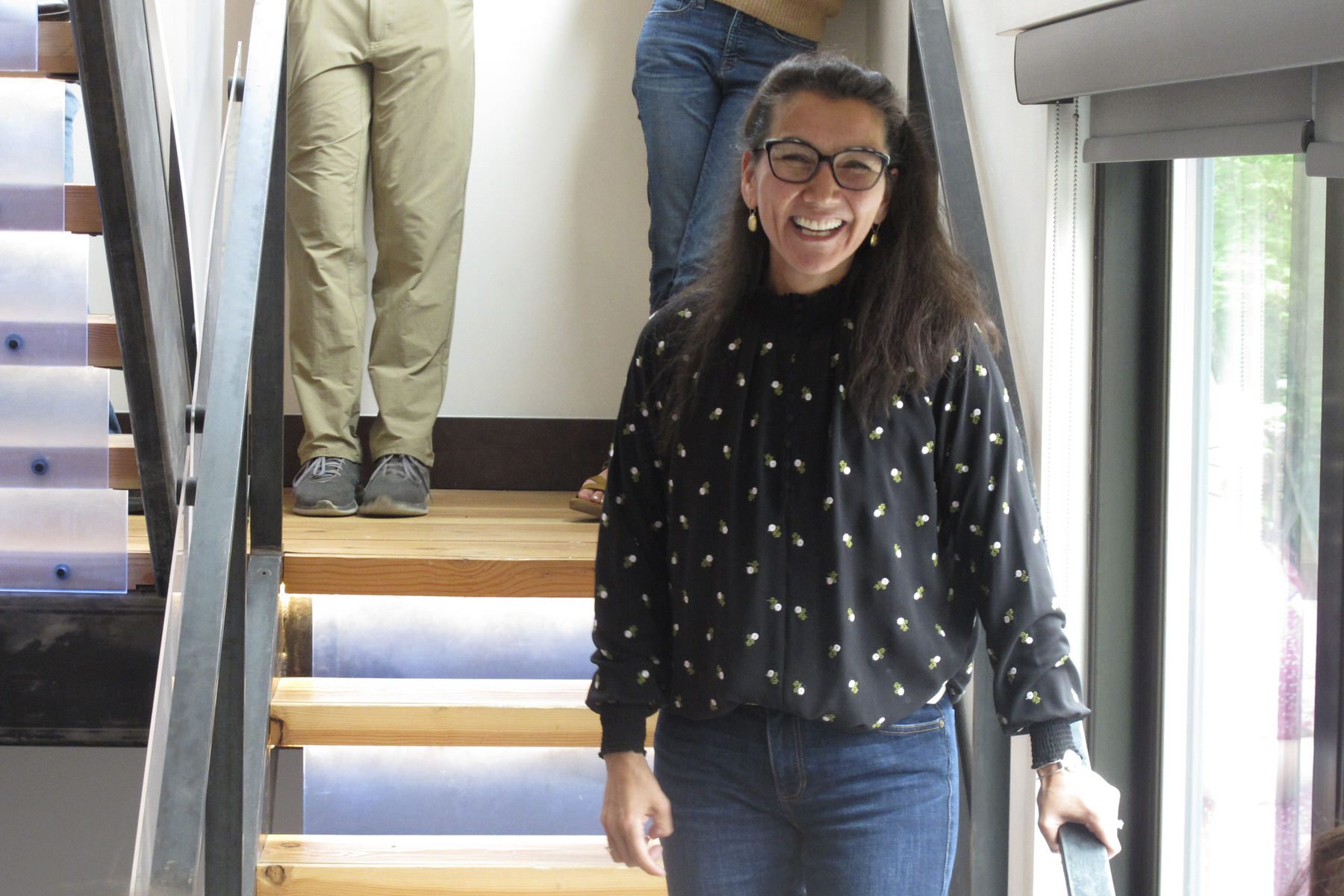Mary Peltola faced an uphill battle heading into the special election for Alaska’s only U.S. House seat.
For one, she’s a Democrat in a state that backed former President Donald Trump over Joe Biden in 2020 by 10 points. Peltola’s most notable opponent in the race was Sarah Palin, the state’s first woman governor who gained national attention — and vitriol — as the second woman to be a major party’s vice presidential nominee. Peltola, by contrast, had little name recognition, though she served as a member of the Alaska House of Representatives for 10 years.
Despite the odds, Peltola’s ability to connect with voters on local issues, in addition to the state’s new ranked-choice voting system, helped buoy the Democrat to a historic victory Wednesday. She is poised to be the first Alaska Native to sit in Congress and will serve the remaining four months of late Republican Rep. Don Young’s term, until January. Young died in March after holding the state’s lone House seat for 49 years.
This summer’s special election is not the end, however. Peltola and Palin are on the ballot again in the November general election, along with Nick Begich, a Republican with a long family history in Alaskan politics. The winner in that election, which like the special will be determined by ballots that let voters rank candidates, will serve a two-year term in the House beginning in January.
The two top vote-getters in both the special election and the primary for the full term are Peltola and Palin, two history-making women with a distinct connection to a state that is often overlooked in the national political conversation. Alaska’s House race also offers a glimpse into how voters view Palin, who remains a polarizing figure 14 years after she gained national recognition.
In a traditional voting system, where voters simply pick their top candidate for each office, Palin’s popularity and endorsement from Trump might have carried her to victory.
However, in 2020 Alaska voters approved an initiative to establish a nonpartisan primary election system, in which voters pick one candidate regardless of party, and a ranked-choice general election system. The top four primary vote-getters move on to the general, when voters can rank their candidates in order of preference. After the first-choice votes are counted, the candidate with the smallest share of the votes is eliminated. In the second round, the votes for the eliminated candidate are distributed based on the voters’ second choice. Then the next candidate with the smallest share is eliminated. This is repeated until one candidate has more than 50 percent of the total votes and is declared the winner.
Heading into Wednesday, the special election results showed Peltola with 39.6 percent of the vote, Palin with 30.9 percent and Begich with 27.8 percent. Votes for candidates other than Peltola and Palin were distributed to their second-choice candidate, if voters picked one, putting Peltola over 50 percent.
Advocates of nonpartisan ranked-choice voting argue it gives voters more say in which candidate is elected and more viability to candidates who are women, people of color and those outside the two-party binary. As a Democrat in a traditionally Republican state, Peltola is one such example.
Peltola was raised in the state’s rural, coastal, southwest region around Bethel, Alaska, which is home to other indigenous Yup’ik people. She was elected to the state House of Representatives in 1998 and held a seat there until 2009. She held a few different positions following her time in the legislature, including as the executive director of the Kuskokwim River Inter-Tribal Fish Commission and a member of the Bethel City Council.
Alaska Natives are estimated to constitute about 20 percent of the state’s population, said Amy Lauren Lovecraft, a professor of political science at the University of Alaska Fairbanks. That figure is significantly higher than the proportion of Indigenous people represented in the general U.S. population — about 2 percent. Yet an Alaska Native has never held a seat in Congress or been governor.
As an Indigenous person in Alaska, Peltola has an intuitive understanding of the relationship between the state, Native tribes and the federal government, Lovecraft told The 19th.
“Peltola is somebody who sort of grew up eating, living, breathing politics because of being an Alaskan Native and being an Alaskan Native woman,” Lovecraft said. “She is also able to think beyond just serving Alaska as a state, but also think about the ways in which the federal government, who still owns the vast majority of Alaska land, operates in relation to our state.”
Peltola has pitched herself as someone who understands the realities facing many rural Alaskans: high grocery prices that leave milk costing $18 a gallon, issues of tribal sovereignty and challenges for the state’s primary industries of fishing and oil production.
While Peltola’s public platforms have highlighted her life in Alaska and interactions with people around the state, Palin has focused more attention on the Justice Department’s investigation into Trump and his associates.
The perceived disconnect between Palin and the issues of her state, as well as the stain of her resignation from public office more than a decade ago, could be her downfall in November.
Palin served in local government before she was elected Alaska’s governor in 2006. She then became a conservative star and media fixation after Republican presidential nominee John McCain chose her as his running mate in 2008. She was positioned to be a draw for social conservatives who could stand behind her anti-abortion views, praise for gun rights and small-town motherly image.
“I had the privilege of living most of my life in a small town. I was just your average hockey mom and signed up for the PTA,” Palin said at the 2008 Republican National Convention. “I love those hockey moms. You know, they say the difference between a hockey mom and a pit bull? Lipstick.”
Palin also gained attention for controversial statements, such as accusing then-Democratic presidential nominee Barack Obama of being friendly with terrorists. Ultimately McCain lost to Obama, and months later Palin abruptly resigned as governor, with more than a year left of her term.
“At that time she was clearly considering whether or not to run for the presidency in 2012,” said Michele Swers, a professor of American government at Georgetown University who focuses on women in government. “And so the fact that she resigned before her term as governor was over was interpreted negatively by some in Alaska as her neglecting the state in order to pursue a more national profile.”
Her decision to resign may still bother some Alaskans today, Lovecraft said, which may factor into how they cast their votes in November. But the looming questions about Palin’s commitment to Alaska mean that voters who would prefer Belgich may not automatically break for Palin just because she is Republican, according to a Twitter thread by Ivan Moore, a longtime Alaska pollster and the owner of Alaska Survey Research. Regardless, those who remain supportive of Palin will be very motivated to show up to the polls, Moore tweeted.
“Palin’s people aren’t just the kind who’ll come out to vote rain or shine,” Moore wrote. “They’re irrepressible, give no credence to naysayers and let nothing get in the way of their firm belief that Palin is destined to win.”







